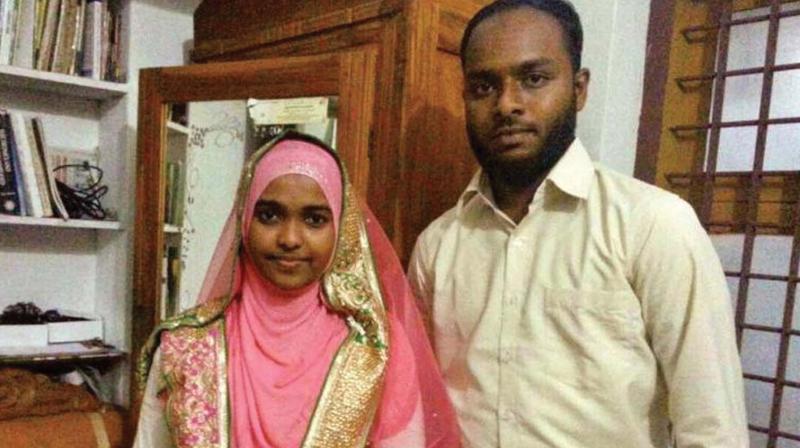Supreme Court restores marriage of Hadiya after 9 months
The SC said that the NIA may go ahead with the investigation in respect to any criminality.

New Delhi: In a perfect happy-ending to a tumultuous and often tragic love story, the Supreme Court on Thursday restored the marriage of Hadiya alias Akhila Asokan, 25, with Shafin Jahan, 28. Since January 2016, when Hadiya’s father filed a complaint against her allegedly forced conversion, they have been at the centre of what has come to be known as the Kerala “love jihad” case. Saying that a court can act as a parent to adults in certain circumstances, the Kerala high court had annulled their inter-faith wedlock on May 24 last year terming it as an instance of “love jihad”, following which Mr Jahan had approached the apex court.
A three-judge bench, headed by Chief Justice Dipak Misra set aside the order cancelling their marriage, saying the high court ought not to have gone into the aspect of marriage. “We hold that the high court should not have annulled the marriage between Hadiya and Shafin Jahan in a habeas corpus petition under Article 226 of the Constitution. We say so because in the present appeal, we had directed the personal presence of Hadiya alias Akhila Asokan; she appeared before this court on November 27, 2017, and admitted her marriage with Shafin Jahan,” said the apex court. “The fact that Hadiya was married or not was irrelevant to decide the habeas corpus petition,” the SC said.
“The fact that Hadiya was married or not was irrelevant to decide the habeas corpus petition,” the apex court said, adding that the NIA cannot go into the legality of consent for marriage. Referring to allegations of Hadiya’s father that Mr Jahan planned to take his daughter to Syria to join the ISIS, the apex court said, “If they are planning to travel to Syria, there are ways to prevent them from travelling. You can’t see a crime in a marriage.” The apex court’s landmark judgment said, “Hadiya alias Akhila Asokan is at However, the apex court refused to stop NIA’s probe into other criminal matters being investigation Mr Jahan. “We clarify that the investigations by the NIA in respect of any matter of criminality may continue in accordance with law,” said the bench, which included Justices A.M. Khanwilkar and D.Y. Chandrachud.
“Love jihad” is a controversial term coined by Hindutva outfits to harass interfaith couples by claiming that these are forced marriages between Muslim men and Hindu women where the motive is conversion. The apex court had, on February 22, questioned whether the Kerala high court could nullify a marriage between “vulnerable adults”. Reacting to the Supreme Court’s order, Hadiya’s father Asokan said that he was pained to let his daughter go with a “terrorist” and that he will continue his legal battle. He claimed that the NIA was continuing with its probe because it was convinced Mr Jahan was a terrorist.
